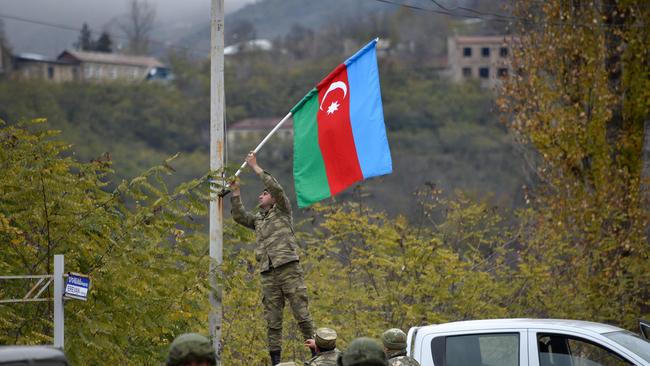World news ... coloured by journos’ views

Based in Doha, capital of Qatar, and an agency of the Qatari government, it broadcasts a news bulletin to subscribers, usually a half-hour in duration, every hour on the hour. It carries stories from all parts of the globe, most of which are not covered by the ABC, Australian commercial networks or even SBS, and offers extensive coverage of African countries that are seldom referred to in the mainstream media.
It is necessary, however, to recognise a strong element of bias in its coverage. One striking example is the treatment of Israel, which is always portrayed in a hostile light and contrasted with the Palestinians in Gaza and the West Bank who are given the role of victims of the Jewish state. It might be thought this would be true for any Arab nation but two of those — United Arab Emirates and Bahrain — recently have normalised diplomatic relations with Israel and this has long been the case with Egypt and Jordan.
One obvious target for Al Jazeera is Saudi Arabia, given that Qatar supports the interests of Iran in the Middle East and Iran’s most formidable opponents in the region are the Saudis. All this was exacerbated in 2017 when the Saudis organised a boycott of Qatar by several Arab countries.
So far, so predictable. More puzzling, however, is the endorsement of many of the views of the politically correct class in most Western countries — admiration for the EU as a supranational government, hostility to Brexit because this constitutes a rejection of the EU, antipathy to the Republican administration in Washington. This kind of coverage almost certainly reflects the views not of the Qatar government, which presumably has a limited interest in such subjects, but of the Western journalists who file these reports and accept, as do most of their colleagues working for private sector media in Europe and the US, this conventional wisdom.
Even more puzzling is the broadly sympathetic coverage of groups that are opposed to regimes across the world, even when their opposition takes the form of violent demonstrations. In this vein, there has been largely uncritical reporting in the past 12 months of the protests in capitals such as Beirut, Baghdad, Santiago and Minsk. The protesters habitually call for the removal of the government but, while there is no doubt much to complain about in the case of all of these administrations, there is little suggestion by them — or by the reporters — as to how a different regime could or would deal with the economic and social problems of these countries.
One series of protests that has received extensive coverage on Al Jazeera has been the demonstrations in Hong Kong. It is true the Chinese regime is an authoritarian one and unattractive to Western values but there is little acknowledgment in these reports that Hong Kong is now a part of China and that it is unrealistic to expect it would have a separate political system. This can be seen again as a reflection of the identification of many journalists with those who want to disturb the status quo. But it is certainly a curious strain in Al Jazeera, given the fact any public criticism of the Qatar administration, let alone any demonstrations, would not be tolerated.
Nevertheless, Al Jazeera provides a valuable service for anyone who has an interest in foreign affairs. It is presumably an expensive exercise by Qatar but the country’s huge revenues from oil and natural gas can more than fund the news service as an unusual experiment in cultural power.
Michael Sexton’s latest book is Dissenting Opinions.



The outbreak of armed conflict between Armenia and Azerbaijan over the disputed territory of Nagorno-Karabakh would have come as a surprise to most Australians but not to viewers of the Al Jazeera English-language news service, which has covered this and similar disputes in remote corners of the world in recent years.